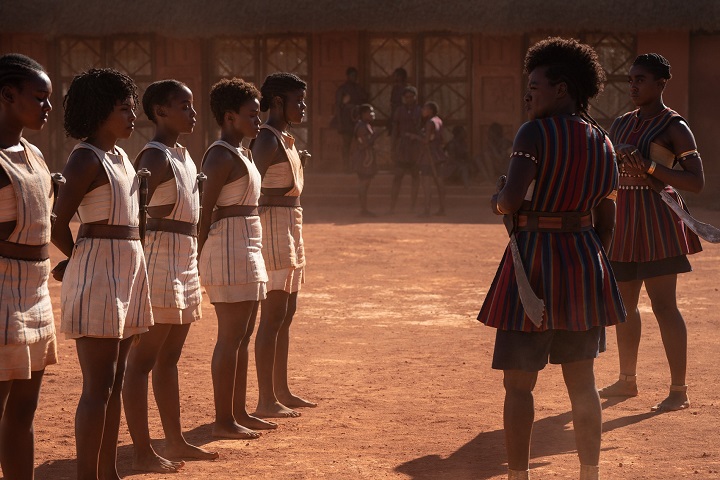
“I felt The Woman King was an important story because I saw myself in it,” says Viola Davis, the Oscar®-winning actress, and producer of the film inspired by the historical all-female unit of warriors who protected the Kingdom of Dahomey from the late 1600s until the late 1800s.
“I saw my femininity in it. I saw my blackness in it. I saw a really important part of history in it,” adds the actress. “I always say any part of history is important, even the small parts. And I think that it is a story that the world is hungry for.”
Inspired by true events, The Woman King follows the emotionally epic journey of General Nanisca (Davis) as she trains the next generation of recruits and readies them for battle against an enemy determined to destroy their way of life. Some things are worth fighting for.
The Agojie warriors lived to serve, defend, and protect the Dahomey kingdom and its king. The Dahomey Kingdom was one of the wealthiest at the time, and its defenders, the Agojie, were the most feared warriors in West Africa, in the territory we now recognize as modern-day Benin.
The Dahomey culture, which significantly valued women, enjoyed a unique and incredibly progressive social structure for the time, with all official roles balanced by both a male and female leader. This system of gender parity included all of the kingdom’s most important positions—from military generals to financial advisors and religious leaders—and reached all the way to the highest ranks where the king would bestow the title of Kpojito—or Woman King—upon a female reign mate.
Davis says that the story of the Agojie warriors spoke to her because it reflected her own journey of pride and self-acceptance, like that which many women experience. “I spent four years at a training school where I felt like I had to cover up who I was in order to be a great actress. I had to really fool you into believing that I wasn’t Black with my body, with my voice; that I had to be sort of a prototype of what we deem as feminine,” Davis explains. “The Woman King breaks all the rules. In the hearts and minds of every woman out there, they wish for that. They hope for that. They hope for a space where they can just sort of bust out of all those confines and say, ‘Here I am and I like it,’ where they can be in the arena of belonging.”
Davis adds that preparing and training for the role and creating the character of the warrior general Nanisca put into focus all of the messages about her body she had received over the years. “All the things that I was taught when I was a girl wanting to win the Miss Central Falls Recreation contests, wanting to look good in a bikini, wanting to be thin and cute, delicate, and pretty, while I was always really muscular and thicker,” she says. “I was always feeling like my femininity could not be created with this canvas. Then, all of a sudden, with this role, my muscles, my arms, my thick legs, my heavy voice were perfect. When I walked on the set as Nanisca, I felt unapologetic about it. I celebrate it physically, in every way.”
In cinemas across the Philippines October 5, The Woman King is distributed by Columbia Pictures, local office of Sony Pictures Releasing International. Connect with the hashtag #TheWomanKing.

